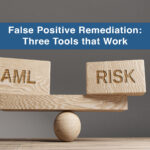London still a haven for oligarchs’ money laundering efforts
Despite the voluminous public handwringing, the British government has yet to curb the vast money-laundering by Russian oligarchs in London. That was the conclusion of a scathing report released this week by the prestigious House of Commons Foreign Affairs Committee of the UK Parliament.
Titled “Moscow’s Gold: Russian Corruption in the UK,” the report focuses on Russian oligarchs’ presence and power in London, on the imperative of making sanctions more effective, and “closing the laundromat” of Russian money laundering in the UK. While the magnitude of the financial crime in and of itself is a major issue, the report emphasized that the “use of London as a base for the corrupt assets of Kremlin-connected individuals is now clearly linked to a wider Russian strategy and has implications for our national security.”
The report urges the British government to elevate to the level of a foreign policy priority the fighting of corrupt Kremlin-related assets: “The assets stored and laundered in London both directly and indirectly support President Putin’s campaign to subvert the international rules-based system, undermine our allies, and erode the mutually-reinforcing international networks that support UK foreign policy,” the report reads.
The report also urges Parliament to strengthen its sanctions options, and it references the effectiveness of the U.S. sanctions laws, such as the Magnitsky Act, related to Russia. The report calls on the UK to work closely with the US, G7 members, and the EU to coordinate sanctions responses to Kremlin-sponsored destabilization campaigns, disinformation campaigns, assassination attempts on foreign soil, interference with neighboring countries and democracies, and so on.
Regarding the ongoing and well-known issue of Russian oligarchs and others laundering money through the London property market, the report noted that some steps have been taken. These include emphasis on identifying ultimate beneficial owners and the Unexplained Wealth Orders. Efforts are also being made to reform and improve the SAR process and to investigate money laundering through Scottish limited partnerships.
Witnesses for the committee testified that a robust “regulatory architecture” for combating money laundering is already in place, but that the UK government needed to dedicate more resources, require more and better coordination of efforts, and demonstrate the political will to move forward strongly on AML initiatives and regulations.
One of the biggest loophole problems is that the 2016 legislation requiring UBO transparency does not currently apply to owners of overseas companies owning or purchasing property in the UK. A Transparency International report cited in the House of Commons report asserts that Transparency International “has identified 176 properties worth £4.4 billion in the UK that have been bought with suspicious wealth—over a fifth of which is wealth from Russian individuals. The owners of these properties were only brought to light due to open source material, such as data leaks and court documents, and so this is likely to be just the tip of the iceberg.”
UK politicians had promised to close this loophole by April of 2018, but that deadline has come and gone with no action taken. A new deadline of 2021 has now been proposed for UBO requirements for overseas companies that own or purchase property in the UK. The House of Commons report described this delay as “regrettable” and calls on the government either to move the deadline substantially nearer or else explain in detail why this action would not be fully implemented until 2021—or five years after the action promised in 2016.
Witnesses also testified as to the inadequacy of transaction-monitoring requirements in the UK compared to other global financial leaders and of the limitations of building cases on SARs alone.
One of the main takeaways from the report is the absence of political will. Several witnesses noted to the committee that even when there are existing financial-crimes regulations with teeth and effective approaches, government officials lack the will to fund and support enforcement.
________________________
Global Software Ecosystem for AML/CTF and BSA/AML
The stakes of global AML Compliance for AML/CTF and BSA/AML are higher than ever. Contact us today to explore how our end-to-end AML Ecosystem SURETY Eco and the SURETY modules –powered by the RegTech One platform–can transform the efficiency and effectiveness of your unique AML Compliance efforts. SURETY Eco includes fully integrated modules for CDD/KYC on-boarding, behavior/transaction monitoring, and sanctions screening. And AML Partners simplifies your end-to-end fully integrated AML Compliance efforts even further with an optional Subpoena Search module for FinCEN 314a and similar subpoena searches. Contact us today to learn more or schedule a demo of SURETY Eco, the AML Ecosystem powered by the RegTech One platform. With extraordinary configurability and built for API extensibility, the RegTech One platform powers not only an end-to-end AML ecosystem but also CECL workflows, vendor management, cyber risk workflows, FCPA workflows, and so much more.

